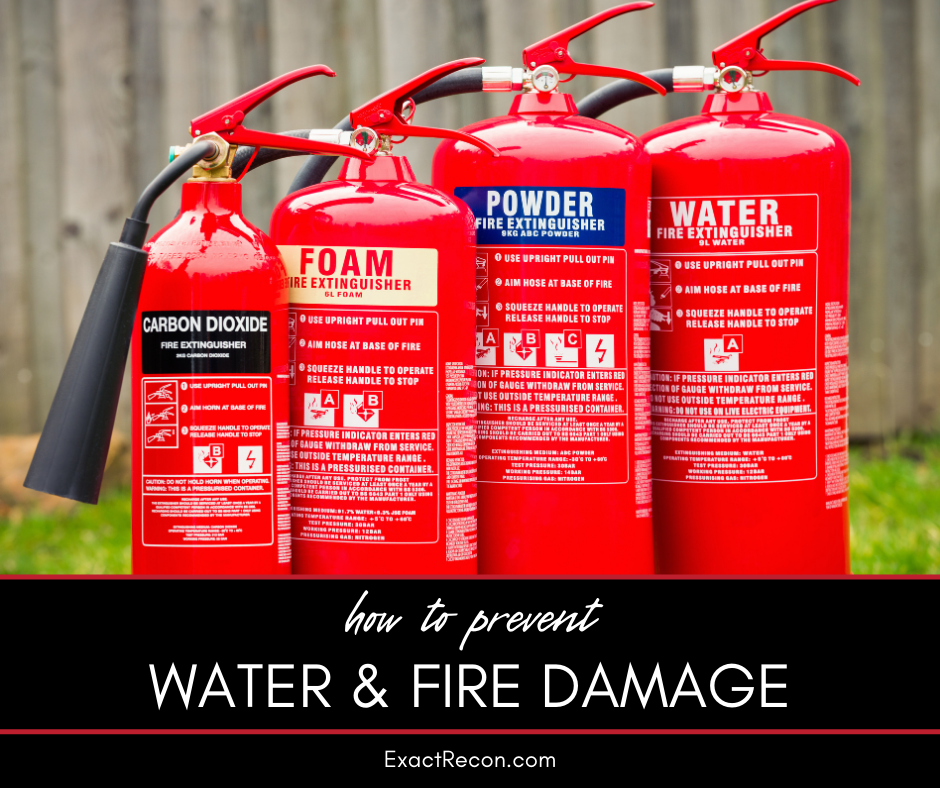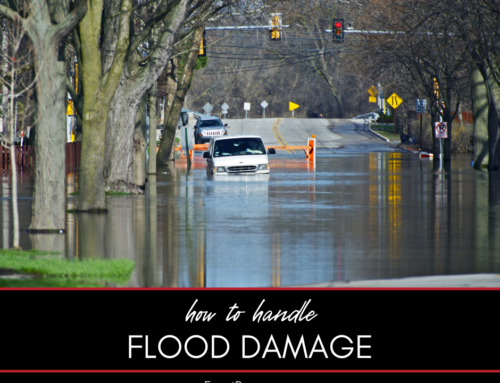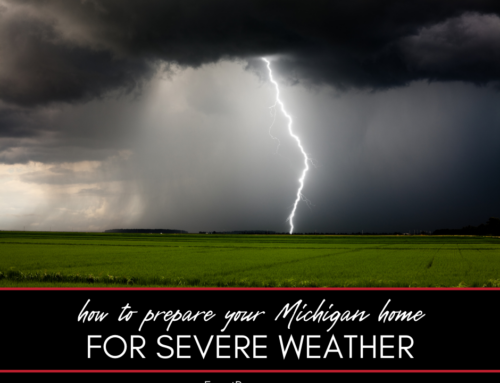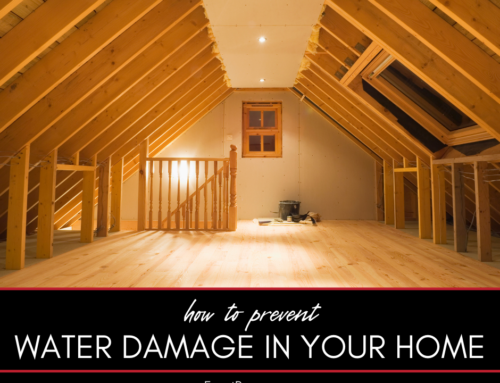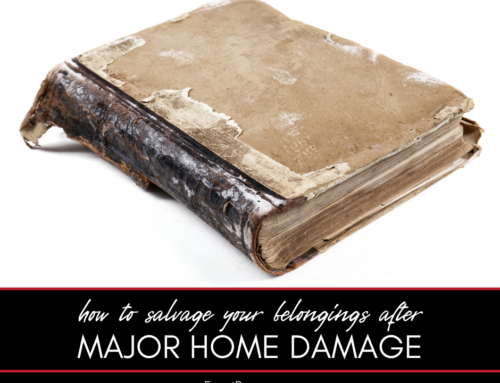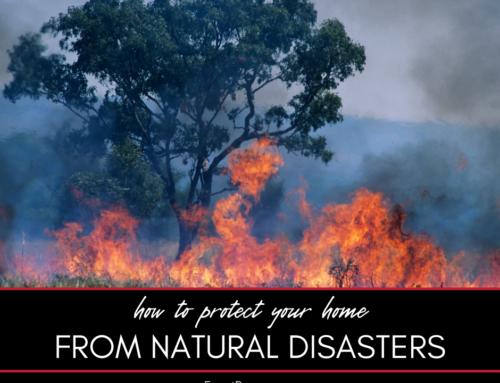No one ever thinks it’ll happen to them, but disasters can and do strike when least expected. From floods to fires, homes in Jackson and Ann Arbor, Michigan, are susceptible to various calamities. So, it’s best to be ready and know exactly how to safeguard your house from these unwelcome intruders.
How to Prevent Water and Fire Damage in Your Home
Ever found yourself looking at a mess in your home after a disaster and thinking, “I wish I had done something to prevent this?” You’re not alone. With the right preventive measures, many of these disasters can be minimized or even avoided. This guide covers:
- Protecting your home from floods
- Fireproofing your living spaces
- Maintenance tips for safer homes
- Recognizing and addressing the early signs of damage
- Establishing a backup and evacuation plan
Here’s a closer look at each.
Protecting your home from floods
Living in Michigan, you’re familiar with the unpredictable weather. To keep water at bay, ensure your home has proper drainage, including clean gutters and downspouts. Installing a sump pump can also be a lifesaver during intense storms. And if you’re living in a flood-prone area, consider raising your appliances and electrical outlets above potential water levels.
Fireproofing your living spaces
House fires can be devastating. To minimize risks, routinely check your home’s smoke detectors and ensure they’re working. Keep flammable materials away from heat sources, and be cautious when using space heaters or candles. And, always have an accessible fire extinguisher in your home.
Maintenance tips for safer homes
Regular maintenance goes a long way. Check for and fix leaks promptly, ensure your heating system is serviced annually, and keep your dryer vents clean to prevent potential fire hazards. It’s also essential to inspect your home’s foundation and roof for vulnerabilities that might let water in.
Recognizing and addressing the early signs of damage
Prevention is the first line of defense, but recognizing signs of potential disaster can save your home from extensive damage. Look out for damp spots on walls, ceilings, or floors, and address them immediately. Regularly inspect your home’s wiring, and if you smell a strange odor or notice flickering lights, call a professional.
Establishing a backup and evacuation plan
In case of a disaster, it’s vital to have a plan. Document essential items, create digital backups of vital documents, and have an evacuation plan in place. Discuss this with all family members, so everyone knows the drill if things go south.
FAQ About Protecting Your Home from Disasters
Here are some frequently asked questions about safeguarding your home from potential calamities. If you don’t see the answers you’re looking for here, please call our office. We’re here to help.
How Often Should I Check My Smoke Detectors?
Smoke detectors are your home’s first line of defense against potential fire hazards. Checking them regularly is vital for the safety of everyone inside. You should:
- Test monthly: Push the test button on your smoke detector. You should hear a loud alarm. If it’s weak or non-existent, replace the batteries immediately.
- Replace batteries annually: Even if they seem to work during your monthly tests, it’s a good practice to replace the batteries once a year. A good rule of thumb is to do this when you change your clocks for daylight saving time.
- Full replacement every decade: Smoke detectors don’t last forever. The National Fire Protection Association recommends replacing the entire unit every 10 years.
What Can I Use to Fireproof My Home?
To enhance your home’s resistance to fire:
- Fire-resistant materials: When building or renovating, use materials like fire-retardant plywood or gypsum board. For roofing, consider using Class A fire-rated materials.
- Fire-resistant plants: Some plants are less likely to catch fire. Opt for high-moisture plants and shrubs around your home, acting as a natural fire barrier.
- Firebreaks: Ensure there are breaks, like driveways or gravel pathways, between your house and potential fire sources, such as tall grass or wood piles.
- Fire-resistant paint: There are special paints that can retard the spread of fire. Using these can provide additional protection, especially in vulnerable areas.
How Can I Tell If My Home Is Flood-Prone?
Assessing your home’s flood risk can save you from potential property damage and financial losses.
- Flood zone maps: These are available online and can show you if your property lies in a flood zone. Websites like FEMA’s Flood Map Service Center can be a good starting point.
- Local authorities: Visit your local municipal or county office. They can provide historical data about past floods and identify flood-prone areas.
- Neighborhood inquiries: Ask long-time residents. They can share experiences of past flooding incidents or observations.
How Often Should I Service My Heating System?
A well-maintained heating system not only keeps your home warm but can also extend the life of the system and keep it running efficiently.
- Annual checks: Service your heating system once a year. This often includes cleaning, checking for any wear and tear, and ensuring everything functions properly.
- Before winter: It’s especially important to get your heating system serviced before the cold season starts to avoid breakdowns during cold snaps.
- Regular filter replacements: While the entire system doesn’t need frequent servicing, you should replace or clean the filters every 2-3 months.
What Should Be Included in My Evacuation Plan?
Being prepared with a solid evacuation plan can make all the difference in emergencies:
- Safe exits: Identify all possible exit points from your home. This includes doors, windows, and other routes. Ensure everyone knows about them.
- Emergency contacts: Prepare a list of all essential contacts, including local emergency services, relatives, and friends.
- Designated meeting spot: Choose a safe and familiar location outside your home where everyone can gather after evacuating.
- Essential items: Make a list of items to grab if there’s time, like medication, identification, water, and non-perishable food.
- Practice: Once you’ve mapped out your evacuation plan, practice it regularly with all household members. Familiarity can reduce panic during a real emergency.
Your home is a sanctuary. By following these guidelines, you can ensure it remains a safe haven, no matter what Mother Nature throws your way.
Do You Need a Disaster Remediation Expert in Washtenaw County or Jackson County?
If your home has already been damaged, we can help. Check out our services and call 734-352-9183 for your free disaster remediation quote today. We offer:
- Water damage restoration
- Mold removal and remediation
- Fire and smoke restoration
- Sewer cleanup and disinfecting
- Reconstruction
- Wind and storm damage repair

